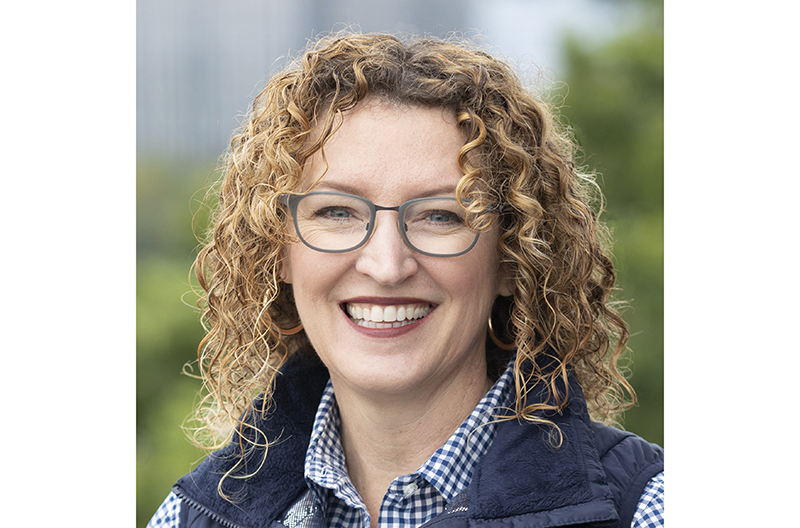(Editor’s note: Bob Reeves, Shelby Publishing’s EVP West, recently visited with Nancy Lebold, CEO of Oregon-based New Seasons Market and the Woman Executive of the Year for the West. Their discussion appears below.)
Thank you so much for joining us. Before we dig in, our readers would like to get to know you a bit more. Can you tell us a bit about your back story? What led you to this particular career path?
Retail sales and customer service has always been a part of my life, starting at a very young age working in my father’s Hallmark and office supply store. I used to restock greeting cards and help customers starting in the fourth grade.
Later, in high school, I worked as the buyer for my father’s business, and that’s when I really got hooked on retail. I went to Oregon State University and graduated intent on being in the retail sector and serving customer needs.
I was recruited into the grocery industry at a career day event at OSU and never looked back. Grocery is in my blood – my grandfather owned a little grocery store and my great-uncle was a buyer way back in the early days of Safeway. The grocery industry just felt right.
For my first grocery job, I had the privilege to work for a little 18-store chain called Waremart Foods and for the amazing founder, Bill Long, who taught me all about how to run an efficient grocery store and how to respect people.

Waremart Foods is now WinCo Foods. I worked for this incredible, employee-owned company for 27 years. As with everyone at WinCo, you do a little of everything. I started at a warehouse in Salem, Oregon, as a buyer, became a VP of general merchandise in Woodburn, Oregon, moved to Boise, Idaho, as the VP of procurement and then finally became an SVP of retail operations.
WinCo Foods sent me to the USC Food Industry Management Program in 2015, and the program changed my life and my views on what leadership meant and how to not only serve your customer but your employees as well.
In 2019, I had the opportunity to work with one of the greatest leaders in the grocery industry today, Bryan Kaltenbach of Food 4 Less out of Compton, California. Working with Bryan and the team at Food 4 Less as the VP of merchandising and marketing was truly one of the most incredible experiences of my career – and not just because it was during the pandemic.
My time at Food 4 Less and under the tutelage of Bryan, challenged me and helped me grow my leadership abilities more than any other time in my career. The dedication of the team there to serve their customers raised my expectations on how to serve communities with passion and perseverance. Having the opportunity to work for a true servant leader like Bryan was a true gift.
I’m from the Pacific Northwest, so when the call came from New Seasons Market about the CEO job, I knew that it was time to come home. Not only have I been infatuated with New Seasons Market since they opened their doors in 1999, but my family is also all here as well.
New Seasons Market represents all the things I value, and having the honor of serving the staff and community here is the highlight and culmination of my entire career. I am so fortunate to work in the Willamette Valley and lead a company that is so focused on serving the community and the planet – cultivating good for generations.
Can you share the most interesting story that happened to you since you began leading the company?
Well, I joined New Seasons Market in 2021 and there are so many interesting stories I could share related to the pandemic, protests, Portland or any number of other things. But I think the most interesting was a recent event that involved a rather important ad that we had scheduled to run for the Fourth of July.
It was to be an insert in the local newspaper. And we were all excited about the promotion. Unfortunately, after the ads were printed – and on the way to the distributor – the semi-truck that was transporting the physical ads was stolen. Yes, the whole truck vanished and has yet to be found.
I have often imagined the look of disappointment on the face of the thief when they threw open the doors, hoping for perhaps something good like televisions or household appliances only to find stacks of paper.
To whomever stole the truck – I hope at least you took a moment to appreciate the beauty of the ad. The marketing team did a tremendous job on the photography.
Can you share a story about the funniest mistake you made when you were starting out? Can you tell us the lesson learned from that?
It’s hard to choose just one mistake to share, so I will go with the first one that comes to mind. My first job out of college was as an assistant buyer, and I was responsible for candy, spices and cigarettes. That also meant that I oversaw the candy sample drawer where all the new item samples were kept.
My boss had told me to keep a close eye on who was taking what because there were many times all the samples were gone by the time they were needed for the new item meeting. And I was not about to disappoint my boss.
The company I worked for had a receptionist who had worked for the company for close to 30 years. She had come to my office and was rifling through the sample drawer when I stopped her. She took exception to the new, young kid who told her to stop. She physically escorted me to the ladies’ room, and as I stood there shaking and fearing for my life, she proceeded to give me the worst dressing down of my life and one I will never forget. What did I learn? If Shirley wants a pack of gum, just let her have it.
In all seriousness, I’ve never really looked at experiences as mistakes. Every mistake is a valuable learning opportunity. It sparks creativity, fosters humility and empathy, develops problem-solving skills, builds resilience and shapes our character. Embracing mistakes as a natural part of the learning process and not shying away from situations that challenge us empowers us to become better individuals, both personally and professionally.
None of us can achieve success without some help along the way. Is there a particular person to whom you are grateful for helping you get where you are? Can you share a story about that?
There are so many people who have helped me along the way that it’s hard to point out just one person. With that said, Cynthia McCloud from the USC Marshall School of Business, who leads the Food Industry Management Program there, has probably been the most influential person in my career.
She not only helped to develop my leadership skills, but also gave me the confidence and support necessary to assume this role. She has been a coach, cheerleader, teacher and motivator. Without her, I would not be in this role.
As far as my growth as a CEO, I have been incredibly fortunate to work with three of the smartest grocery operators in the industry – Neil Stern (CEO of Good Food Holdings), Adam Caldecott (CEO of Bristol Farms, Lazy Acres, New Leaf Community Markets) and Ron Megahan (CEO of Metropolitan Markets).
These three men have challenged me, supported me and made me a better CEO. Whether it is demonstrating how to effectively lead high quality, independent and regionally focused neighborhood grocery stores, showing me what superior merchandising looks like or arguing with me in strategy sessions, I have never learned so much and had so much fun.
As a busy leader, what do you do to prepare your mind and body before a stressful or high stakes meeting, talk or decision? Can you share some examples?
Although it was later in life that I learned the secret, for me the best way to release and relieve stress as a busy leader is when I practice gratitude. It’s all about focusing on the good things in life and work, which makes me feel happier and more content and that, in turn, makes me a better leader.
It’s like a superpower that helps me handle tough times and bounce back stronger. It stops me from overthinking and getting stuck in negative thoughts, which helps me to problem solve and find a way forward.
I find that being grateful for the situation, grateful for the opportunity to participate and grateful for those around me, puts me in the right state of mind to understand as a leader, it’s not about me. Once I stop focusing on myself, I am my best self and can deal effectively with whatever comes my way.
As you know, the U.S. is facing a self-reckoning about race, diversity, equality and inclusion. Can you articulate to our readers a few reasons why it is so important for a business or organization to have a diverse executive team?
Where do I begin? There are so many reasons why it’s super important to have a diverse executive team:
- Fresh ideas and creativity: When you have people from different backgrounds and experiences on a team, they come up with all sorts of cool and innovative ideas. It’s like having a bunch of creative minds working together to solve problems in unique ways.
- Better decision making: Having a mix of people with different perspectives means you can make smarter decisions. They’ll look at things from various angles and avoid just agreeing with each other all the time. That way, you can consider all the options and pick the best one.
- Understanding customers better: Think about it – if your customers are from all walks of life, it helps to have a diverse team that understands them. They can relate to your customers’ needs and come up with products and services that really resonate with them.
- Better company reputation: People love to see companies that value diversity and fairness. It shows that the company is open-minded and cares about equality. A good reputation can attract top talent and make customers feel good about supporting your business.
- Higher profits: Yep, you heard it right – diverse teams can actually make more money. They’re adaptable, creative and innovative, which means they can keep up with changes in the market and find new opportunities for success.
So, having a diverse executive team is a win-win for everyone – it brings in fresh ideas, helps with decision-making and shows that your company is awesome and cares about its people and customers.
Please share a few steps we must take to truly create an inclusive, representative and equitable society.
- Promote diversity in hiring and leadership: To build an inclusive workplace, the first step is to ensure diversity in hiring practices. Business leaders should actively seek candidates from diverse backgrounds, including different ethnicities, genders, ages, abilities and perspectives. Creating a diverse leadership team is equally important, as it sets an example and allows diverse voices to be heard at the decision-making level.
- Cultivate a respectful and supportive culture: Business leaders play a crucial role in fostering a culture of respect and support within the organization. They should lead by example, emphasizing the value of each team member’s unique contributions. Encouraging open communication and active listening can create an environment where employees feel comfortable expressing their ideas and concerns. Implementing anti-discrimination and anti-harassment policies, along with diversity and inclusion training for all employees, reinforces the commitment to a respectful workplace.
- Offer diversity and inclusion training: Provide regular training sessions for all employees to raise awareness about diversity, unconscious biases and inclusion. These workshops can help employees understand the importance of inclusivity, promote empathy and cultivate a more inclusive work environment.
By taking these steps, business leaders can create a workplace where staff feel valued, respected and empowered, leading to increased employee satisfaction, productivity and overall success of the organization.
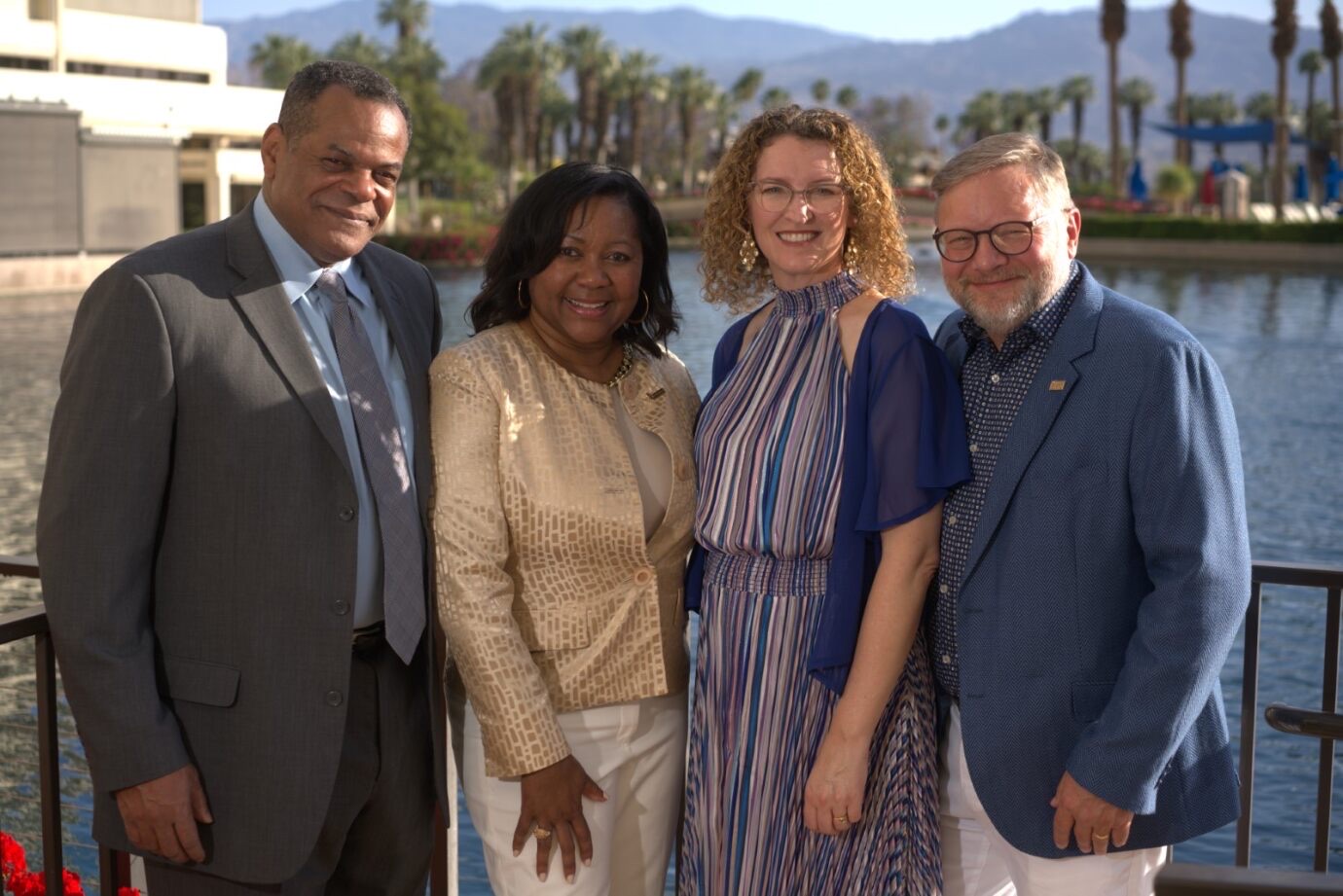
Most of our readers – in fact, most people – think they have a good idea of what a CEO does. But can you explain what an executive does that is different from the responsibilities of the other leaders?
As the CEO, my role as an executive goes beyond the traditional responsibilities of other leaders within the organization. While they focus on specific departments or functions, my role is to oversee the entire organization, promote a healthy culture and provide strategic direction to drive organizational and profit growth.
One of my main responsibilities is setting the vision and goals for the company, ensuring alignment with the broader mission and values. And at New Seasons Market, this is critical. I develop and implement strategic plans and initiatives that guide the organization toward success, while also considering the needs of our staff, customers, vendors, communities and the planet. It’s a balancing act to make sure our triple bottom line – people, planet, profit – are all in harmony.
In addition to that, another key responsibility of my role as CEO of New Seasons Market is to shape the culture of the business through my actions and decisions, which have a ripple effect throughout the company. By setting the right tone, values and behaviors, a CEO can foster a positive and productive culture that aligns with the company’s goals and mission.
What are the “myths” that you would like to dispel about being a CEO or executive?
As a CEO and executive, I recognize that there are often misconceptions or myths surrounding the role, one being that CEOs and executives have all the answers or that we possess an inherent superhuman ability to always make perfect decisions.
In reality, being a CEO or executive is not about having all the answers, but rather about fostering a culture of collaboration and embracing diverse perspectives. It’s about surrounding oneself with talented and knowledgeable individuals, building strong teams and leveraging their expertise to make informed decisions.
Additionally, I think there is a misconception that CEOs and executives are solely focused on profits and the bottom line. While financial success is important, especially for ensuring the sustainability and growth of the company, responsible leaders understand the importance of balancing profitability with the well-being of staff, customers, communities and the environment.
At New Seasons Market, we’ve adopted a people, planet, profit approach, which is integral to creating long-term success and positive impact.
Lastly, there seems to be a notion that CEOs and executives are detached or disconnected from the day-to-day operations and the challenges faced by staff. Effective leaders remain connected to all levels of the organization, fostering open communication channels and actively listening to feedback and concerns from team members.
This engagement allows us to understand the needs of the organization and make informed decisions that drive positive, and is also beneficial for the overall success and well-being of the organization.
What is the most striking difference between your actual job and how you thought it would be?
The most striking difference between my actual job as a CEO of New Seasons Market and how I initially thought the job would be is the level of unpredictability that comes with the role.
When I aspired to become a CEO, I was well aware that navigating an organization would involve facing challenges and unexpected situations along the way. However, as I stepped into the position, I realized the nature of leading a dynamic and passionate business means there are constantly unforeseen external factors that can impact our plans. This level of uncertainty necessitates embracing the beauty of the mess and finding opportunities within it.
Rather than being deterred or overwhelmed by unpredictability, I have learned to recognize the inherent possibilities it presents. I understand that amidst the chaos, there is room for innovation, adaptation and growth. The messiness allows us to think creatively, find alternative solutions and chart new paths forward. It’s in these unforeseen moments that we uncover unique insights and uncover opportunities we may not have noticed otherwise.
I have come to appreciate the need for agile decision-making, the ability to pivot when necessary and the willingness to learn from mistakes and adjust our course of action. Embracing the beauty of the mess has allowed me to become a more adaptable and open-minded leader, ready to face whatever challenges come our way.
Rather than seeking a perfectly controlled environment, I believe that the magic lies in navigating everything with agility and a positive mindset. It’s about finding the silver linings, learning from each obstacle and fostering a culture that embraces change and thrives amidst uncertainty.
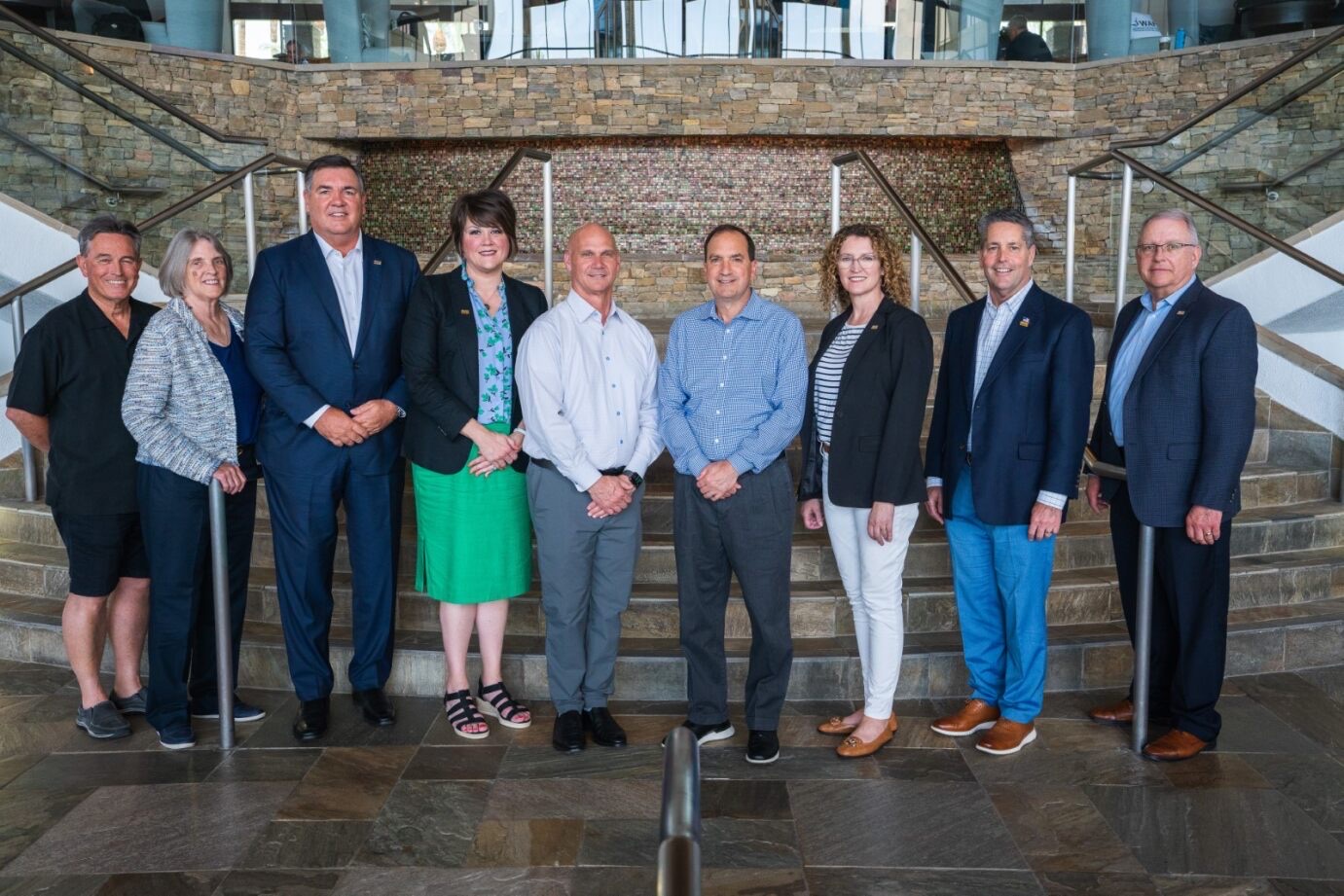
Certainly, not everyone is cut out to be an executive. Which specific traits increase the likelihood that a person will be a successful executive? What type of person should avoid aspiring to be an executive?
There are three traits that I think every executive must possess to be successful – credibility, competence and caring. Without those three things, I think an executive will have limited success and it takes intention, purpose and determination to acquire those traits.
I would say there is not a type of person who should aspire to be an executive, everyone has the potential to be a very successful, effective executive.
With that said, if you are honest with yourself or received feedback from others that indicates that you are indecisive, have difficulty delivering results or following through on commitments, I would recommend that you begin working with an executive coach to help bolster your skills in these areas. No one should limit their potential to be a leader.
How have you used your success to make the world a better place?
Well, I feel uncomfortable labeling any success as mine personally, since I am simply the product of all the people in my life who have invested in me and supported my work. From my first job, I have been so fortunate to have folks who took me under their wing to raise me right and help me to understand how what I do can make a difference.
Whether it was my time at WinCo Foods, where I worked with a group of amazing folks who were passionate about helping people stretch their food dollars farther, to my time with the Food 4 Less family, where I spent my time having the honor of working alongside folks who were dedicated to serving communities which were disproportionally impacted by the pandemic and the impacts of the George Floyd murder and the fight for equity and justice.
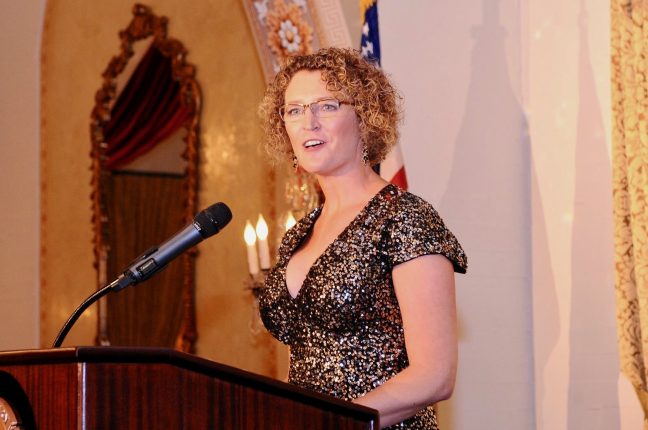
The culmination of my career is my time here at New Seasons Market, where making the world a better place is part of every conversation and every activity. [New Seasons Market] is a mission driven company that focuses on a triple bottom line of people, planet, profit.
As the nation’s first B-Corp certified grocer, we give back to the community, we support our regional food economy and invest our time and energy into the planet. One of the most rewarding aspects of my job is the satisfaction I get from what we do here as the example for the grocery industry that you can do all the right things and be a successful business.
Leading a company that believes in cultivating good for generations is truly the high point of my career. What we do here matters, and it does make the world a better place.
What are your “five things I wish someone told me before I started?”
- Embrace the power of adaptability: Throughout my career, I’ve learned that the ability to adapt is crucial for success. In the dynamic world of retail, unforeseen challenges and market shifts are inevitable. One significant example is New Seasons Market managing supply chain disruptions throughout the pandemic. By quickly adapting our operations, sourcing products locally and supporting our staff’s well-being, we were able to continue serving our customers and communities effectively.
- Cultivate a diverse and inclusive culture: Building a diverse and inclusive workplace is not only morally right but also a strategic advantage. Throughout my career, I’ve realized that fostering a culture of diversity and inclusion can lead to better decision-making, improved innovation and enhanced staff engagement.
- Invest in sustainability early on: Being the world’s first B Corp certified grocer, I have witnessed the importance of sustainability in our business model. From reducing our carbon footprint to sourcing from ethical suppliers, sustainability has become a core value. Our sustainability practices at New Seasons Market have resulted in cost savings, improved brand reputation and increased customer loyalty.
- Prioritize building strong relationships with stakeholders: As a leader, I have come to understand the critical role of nurturing strong relationships with stakeholders. This includes not only our customers, but also staff, vendors and communities. Recently, New Seasons Market partnered with Tillamook to accelerate regenerative agriculture within our supply chain as a part of the solution to creating a low-carbon and resilient regional food economy. Soon we will be announcing another exciting partnership with them and together we will have an even greater impact on the sustainability of the regional food economy. It is these kinds of strong relationships with stakeholders that magnify our ability to make a positive difference.
- Trust and empower your team: Leaders often feel the need to micromanage to ensure tasks are executed perfectly. However, I have learned that trusting and empowering your team leads to a more productive and harmonious work environment. At New Seasons Market, [Lebold] foster an environment of trust and encourage open communication. I’ve seen the incredible results when teams feel empowered to take ownership of their projects and bring innovative solutions. Trusting my team and delegating responsibilities has allowed me to focus on strategic initiatives and drive organizational growth.
You are a person of great influence. If you could inspire a movement that would bring the most amount of good for the greatest number of people, what would that be?
This is an easy one for me to answer. If I could inspire a movement, it would be around regenerative agriculture. There may be some readers who are familiar with this type of farming and ranching. But I am convinced if more folks understood what it is and how this could solve so many of our problems, I am confident that the world would embrace regenerative agriculture wholeheartedly.
Regenerative agriculture is a farming approach that cares for the land and environment while producing food. Its purpose is to improve soil health, protect natural resources and create a sustainable farming system.
By working with nature and using practices like crop rotation, composting and reducing harmful chemicals, regenerative agriculture aims to build a balanced and resilient ecosystem on the farm. This helps fight climate change, preserve wildlife and ensure a healthy food supply for future generations. Regenerative agriculture just makes sense.
So, can you do me a favor? Watch the documentary “Kiss the Ground” on Netflix. It’s narrated by Woody Harrelson and does a tremendous job explaining what regen ag is about and how it can help.
In general, “Kiss the Ground” provides a powerful and compelling case for the importance of regenerative agriculture in addressing environmental and climate challenges. It calls for a shift toward more sustainable and mindful practices in agriculture and encourages viewers to play a role in shaping a better future for the planet. I guarantee it will be worth your time.
Can you please give us your favorite life lesson quote? How has that been relevant to you in your life?
Those who know me know I’m not likely to have many “life lesson quotes” up my sleeve or hanging on my wall. But the one thing I do have on my wall is Theodore Roosevelt’s “The Man in the Arena” speech. The quote can be summarized as follows:
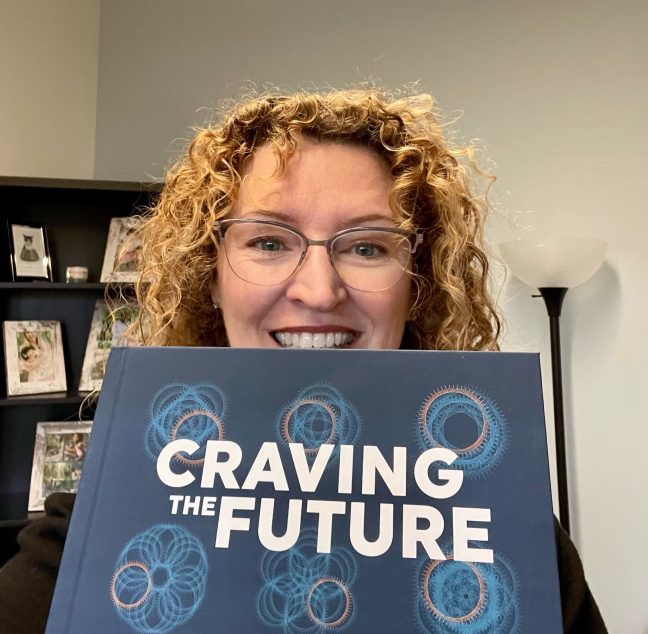
“It is not the critic who counts, nor the one who points out how the strong person stumbled or how the doer of deeds could have done them better. The credit belongs to the individual who is actually in the arena, facing challenges, striving valiantly, even if they fail, because their dedication and effort inspire others and bring about growth and progress.”
Its longer than that, but you get the idea. In life, it is so easy to point out how someone else struggles, especially from the sidelines. To live life fully, you must be in the arena and daring greatly – falling down and getting up time and time again.
We are blessed that some prominent names in the food industry will read this. Is there a person in the world with whom you would love to have a private breakfast or lunch with?
Meeting Indra Nooyi, the former CEO of PepsiCo, would be the highlight of my career. I have followed her for many years. As a successful business leader, she can offer me valuable insights into leadership, innovation and corporate strategy. Her advocacy for diversity and inclusion provides important lessons on fostering an inclusive workplace culture.
Having some time with Indira would be motivating and a source of inspiration for personal development. Additionally, learning from the challenges she faced in her career would provide valuable lessons on resilience and problem-solving.
Her involvement in social impact and sustainability issues highlights the role businesses play in addressing broader societal and environmental concerns. I imagine that she would have a lot of insights and guidance for me as the CEO of New Seasons Market. Indira, if you are reading this, would you like to grab a cup of joe and a Danish?
Read more news from New Seasons Market brought to you by The Shelby Report.

